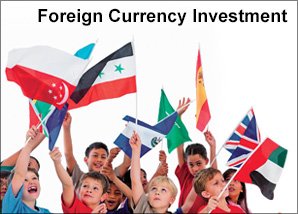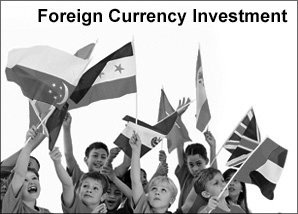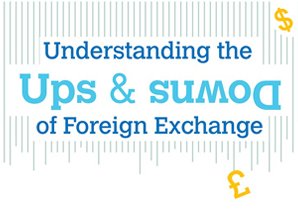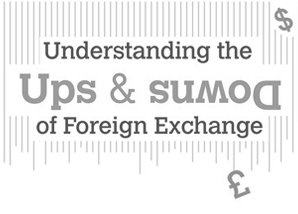Benefiting from Foreign Currency Awareness
Learning more about the foreign currency market could be financially rewarding in the short and long-term
Often when we consider investments, it revolves around the more traditional picks of stock market shares, unit trust funds and property. The idea of foreign currency trading generally doesn’t register as an investment option because to many people it remains in the realm of professional currency traders hunched over a computer crunching numbers to quickly take advantage of economic data. The common belief is that foreign currency trading is only for the experts. This is a misconception.1
As the world continues to become even more globalised and we become more mobile, our financial goals are also becoming more international in nature. Our need for foreign currency is becoming part and parcel of everyday life, whether it’s for business, travel, overseas education or investing abroad.1
By gaining a basic understanding of the foreign currency market, we could potentially create more value on our short-term foreign currency purchases, while developing a foreign currency investment strategy over the longer term which can help us achieve our life goals that may require spending large sums of money abroad.1
Understanding the Basics
Next, it’s worth understanding some ground rules and how foreign currency trading works.
Currencies are traded in pairs. The value of a particular currency is always expressed relative to another currency- for example the Malaysian Ringgit (MYR) compared with the US Dollar (USD), or the MYR relative to the Euro (EUR). Foreign currency trading involves forecasting on how one currency will move in relation to another.2
If you are new to the foreign currency market, it is advisable to stick with main currency pairings to make it easier to research the market and maintain tighter spreads. Of course, you can trade in obscure currencies like the Algerian Dinar or Vietnamese Dong, but it’s going to be a lot harder to keep track of these currencies than the Japanese Yen or Swiss Franc.2
Accept that there will be losses. The foreign currency market is huge and values are constantly fluctuating. So it is unrealistic to expect that you’ll make money on every trade. It’s a good idea to develop a plan and stick to it. A foreign currency trading plan involves targeting specific profits and setting a limit on what you are prepared to lose.2
Researching the Market
There is a wide range of key factors that affect the foreign currency market, some more technical than others.1
To be financially literate in foreign currencies it’s worth taking the time to research the market.
Researching will give you a feel of how currencies behave and this can reduce the element of “punting” in your foreign currency trading.2 Typically, foreign currency traders use two types of research to varying degrees – technical analysis and fundamental analysis. Technical analysis looks at price trends mapped out on charts which may be more helpful for experienced foreign currency traders and investors.
Fundamental analysis looks at the broad spectrum of factors that affect currency movement ranging from interest rate announcements to inflation figures, political factors and even natural disasters. There is a lot to cover but keeping abreast with the financial markets and economic news will make you better informed about how foreign currency markets are behaving.2 In particular, it is helpful to have a broad understanding of the major developments affecting the currencies that are most relevant to your life.1
…Pursuing a four-year Bachelor Degree (Honours) in Australia would roughly cost USD168,372
(Equivalent to MYR656,777 based on exchange rate as at 17 April 2016).
Putting your currency literacy to use
Just because you don’t have children pursuing their education overseas or you’re not planning on buying a property abroad doesn’t mean that currency literacy won’t come in handy.
Planning a holiday is a relatively simple way that you could take advantage of foreign currency trends. For example, if you were planning a holiday to the United States this year and had bought USD on 29 April 2015 at MYR3.533 versus buying it almost a year later on 5 April 2016 at MYR3.933, you would have saved almost 12% and given yourself more USD for your MYR. By tracking the movements of the currency you need, you can buy it at intervals at favourable rates to you. By spreading out the average cost of foreign currency purchase, you will ideally buy at the best average rate possible.1
Having an understanding of the foreign currency market and trading can be particularly useful if you have long-term goals that involve the need for foreign currency. For example, if you are planning to send your children overseas for education or planning to invest or perhaps retire abroad, it may be helpful to plan many years ahead to meet your future needs for that large sum of foreign currency.1
If you are planning to send your children overseas for their university education, it can probably be one of your biggest costs of parenting. Failure to take into account the foreign currency implications can make it even more of a financial burden.1 Highly regarded higher education destinations like the UK(USD35,045 per year), Australia (USD42,093 per year) and the US (USD36,564 per year) can cost a pretty penny.4 If you do the sums, pursuing a four-year bachelor degree (honours) in Australia would roughly cost USD168,372 (equivalent to MYR656,777 based on exchange rate as at 17 April 2016).3
If you are planning to invest in property in Singapore or have a settlement due for a property you have purchased in the UK, you can plan in advance to buy Singapore Dollars or the British Pound when those currencies are weak. By keeping an eye on the foreign currencies you need, you can buy the currencies whenever it reaches a favourable rate. For example, you could maintain a foreign currency account in the currency you need and transfer funds from your MYR account, or open a foreign currency time deposit when the timing is right.1
Accumulating savings and investments in the foreign currencies you need to cover overseas education costs and payments is particularly helpful in the current market condition where the Ringgit is experiencing fluctuations against major currencies. So rather than putting off your foreign currency purchases till the last minute where you may run the risk of buying at unfavourable rates, it’s best to plan ahead.1
By equipping yourself with basic knowledge about how the foreign currency market works and seeking advice from a financial specialist, you will increase the chances of using foreign exchange to increase and protect your wealth.1
Whatever your foreign currency needs, HSBC may have the right foreign exchange solution for you. Whether you need foreign currency for traveling, or would like to save and invest in foreign currency, we are here to fulfill your needs. Plus with our Global View & Global Transfers, you can view, manage and transfer funds between all your HSBC accounts globally anytime, anywhere in the world.
For more information about HSBC’s foreign exchange solutions, please feel free to talk to your Relationship Manager or walk into any HSBC branch nearest to you.
1 The Malay Mail, The long and short of navigating currencies, March 15, 2016.
2 Money Magazine, Trading in foreign currency, June 9, 2015.
3 XE Currency Charts, USD/MYR Close at 3.90075, undated.
4 HSBC Global Report, The Value of Education: Springboard for success, April 2014.


 LIKE THIS ARTICLE?
LIKE THIS ARTICLE?





















